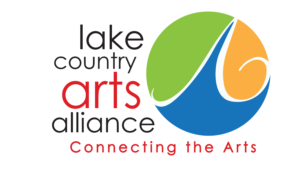Community Theatre: A Sense of Place
Dr. Margaret Rainey Morris
“Community theatre creates a magic that you can’t find anywhere else.” Annie Bollen
Historically, community theatres have been an avenue of expression through the performing arts. They are places for creating a magical experience, not only for those on stage, performing, but also for those in the audience, watching. Interestingly, the evolution of the name for this kind of performance activity happened slowly in America. First called amateur theatres or little theatres, most likely named because of the comparative small size of the performance venues to the larger concert halls, the now-named community theatres have become a mainstay of America’s culture.
According to the American Association of Community Theatre (https://aact.org/community-theatre-history), as early as 1904, Percy MacKaye, an American dramatist and poet, wrote of the need for “civic” theatre activity. He wrote that theatre addressed the need for “the conscious awakening of a people to self-government in the activities of its leisure.” Although the Little Theatre Movement emerged around 1912, The Footlight Club, a community theatre located in the Jamaica Plain neighborhood of Boston, Massachusetts has the recognition of being the oldest continuously performing community theatre since its beginning in 1877.
Closer to home, among the membership of the Lake Country Arts Alliance, there are presently 2 community theatre groups: the Plaza Alliance for the Performing Arts (PAPA), founded in 1978, with productions at The Plaza Arts Center in Eatonton, GA and the Lake Country Players, founded in 2011, with productions at Festival Hall in Greensboro, GA. Both organizations are volunteer based, under a non-profit umbrella that is open to people of all ages and talents. Individuals from various walks of life and occupations happily volunteer to come together in a spirit of camaraderie to create an artistic endeavor. When asked her reasons for volunteering for community theatre productions, Annie Bollen, who works in the Putnam County school system and has graced the stages of both groups, replied, “Community theatre is my safe place; it relieves me from some of the stresses of the world for a while. It is where I feel at home; it has given me a family.”
However, it is important to remember that volunteer opportunities are not only for those who enjoy being on stage as actors. Productions need and welcome people with talent in set design and construction; costuming; hair and makeup; finding just the right props; and, for those who enjoy writing and promoting, marketing. These elements are important and necessary for a show’s success. When watching a show as an audience member, these elements come together allowing the actors to manage the flow of the play in a seamless manner and to tell a story through character development and plot. Maureen Roesler Brower, chair of the Lake Country Players, appreciates those who volunteer, “These are people who are truly passionate about performing on our stage . . . their only reward being the satisfaction of sharing their passion with others in our Lake Country community.”
As our country begins the process of reconnecting with others and opening the doors of community gathering places, we more than ever need community theatre and the performing arts. Brower agrees, “I have been looking forward to getting back to performing live at Festival Hall for months now. There is nothing better than feeling the exchange of energy and emotion between yourself and the audience. I love when we have a production that makes you think and feel.”
Indeed, community theatres can be agents for change by providing productions that inform community thinking and action. Educational opportunities abound through collaborative efforts with local schools and businesses. They contribute financially to the local economy and artistically to the well-being of the community. The evidence is clear; participating in community theatre is informative, entertaining, and just good fun.
The Lake Country Players’ production of Southern Fried Funeral written by J. Dietz Osborne and Nathan Eppler, opens at Festival Hall in August 2021. PAPA’s next production, Melanie Marnich’s These Shining Lives, opens in March of 2022 at The Plaza Arts Center in conjunction with the commemoration of National Women’s History Month. For more information concerning the community theatre groups, PAPA and the Lake Country Players, visit the Lake Country Arts Alliance website at www.lakecountryarts.org. Specifics as to upcoming productions for 2021/2022 as well as contact information are available on each group’s webpage.
